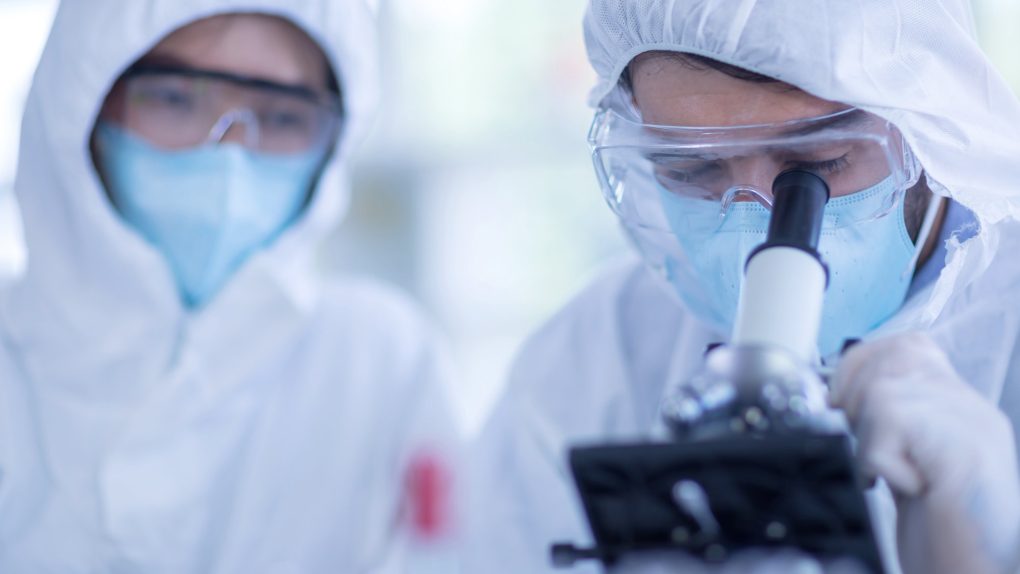- The UK government has announced stricter lockdown measures after learning that the B.1.1.7 coronavirus mutation seems to be up to 70% more infection than the previous strain.
- The new strain has acquired 17 different changes, which might be a record for SARS-CoV-2 mutations. The UK strain has some similarities to the South African mutation, but they don’t match.
- Experts say the UK COVID-19 mutation isn’t immune to current vaccines, although the strain does feature changes that impact the spike protein.
Researchers have recently discovered two distinct coronavirus mutations that might affect how the virus spreads. One appeared in the UK, where researchers found it to be spreading faster in some regions. The other was discovered in South Africa, with health experts warning that it wasn’t just becoming the dominant strain; it was also causing more severe illness in young people without pre-existing conditions. Young people were previously most likely to either be asymptomatic or have a mild case and they will also be vaccinated last.
These aren’t the first coronavirus mutations to receive widespread coverage. The D614G mutation that made the virus more infectious in March is the best-known variation of SARS-CoV-2. Cluster 5 from Denmark is also prominent, as researchers feared that it had pandemic potential of its own before those worries were quelled. It now turns out that the UK strain, dubbed B.1.1.7, will ruin Christmas. It’s not just more infectious than the version it derived from — it might also be connected to the South African strain.
Christmas 2020 wouldn’t have been a walk in the park either way, but this mutation changes things. The coronavirus is still raging in the northern hemisphere, including the US and Europe. But when British prime minister Boris Johnson announced over the weekend that the B.1.1.7 strain is 70% more infectious, everyone took notice. The UK government announced stricter measures, all but canceling Christmas. European countries moved swiftly to ban travel to the UK, including Belgium, France, Italy, and the Netherlands. New York governor Andrew Cuomo said the new strain is “getting on a plane and flying to JFK,” asking for measures to deal with the new threat.
While the new strain is scary, some researchers warn that it’s too early to say whether B.1.1.7 is indeed spreading faster, whether it’s similar to the South African version, or whether it will hinder vaccination efforts. However, many more details are available about the UK COVID-19 mutation via ScienceMag — here’s what we know:
- B.1.1.7 first appeared on September 20th but accounted for 26% of cases in mid-November. The numbers climbed by the week of December 9th. Over 60% of new cases in London were the new variant.
- B.1.1.7 acquired 17 mutations at once, which is unusual, as the virus has mutated at a rate of about 1 to 2 changes a month. The explanation for the mutation is that the virus might have mutated inside the same human host.
- Eight of those mutations impact the gene that codifies the spike protein that binds to cells. The protein sits at the outside of the virus, and it’s what neutralizing antibodies target, including those created by vaccines.
- Two of the eight are worrisome. The N501Y mutation increases how tightly the protein binds to the ACE2 receptor on cells. The 69-70del mutation is a loss of two amino acids in the spike, and it’s been found in viruses that eluded immune response in immunocompromised patients. As a result of the latter, PCR tests might be cheaper to make — a test called TaqPath looks for three pieces of three genes, including 69-70del.
- The 69-70del mutation appeared together with a mutation called D796H in an infected patient. He tested positive for several months and was given plasma. The patient died, but virologist Ravindra Gupta from the University of Cambridge found that the virus carrying the two mutations was less susceptible to neutralizing antibodies from plasma than the wild-type virus. The researchers found the deletion made the virus twice as infectious. He is now studying the combination of N501Y and 69-70del in new experiments.
- Well-known virologists, including Christian Drosten and Angela Rasmussen, say more research is needed to determine whether the virus is indeed more infectious, or whether it’s just a coincidence, as it was with the Spanis strain B.1.177 over the summer — there’s no relationship between the similarly named strained.
- Drosten says B.1.1.7 also carries a deletion of the ORF8 genes that previous studies said might reduce the coronavirus’s ability to spread.
- The South African mutation carries the same N501Y mutation as the UK one. The African strain called 501Y.V2 spreads faster and seems to be more dangerous for young adults. It’s not a perfect match to B.1.1.7, however.
- The B.1.1.7 version might be spreading elsewhere. Dutch researchers have already confirmed a case from early December.
Experts believe that the mutation isn’t immune to the vaccine. Additional safety measures, including travel bans and specific testing for the new strain, will be required to determine the scope of the B.1.1.7 infection.








